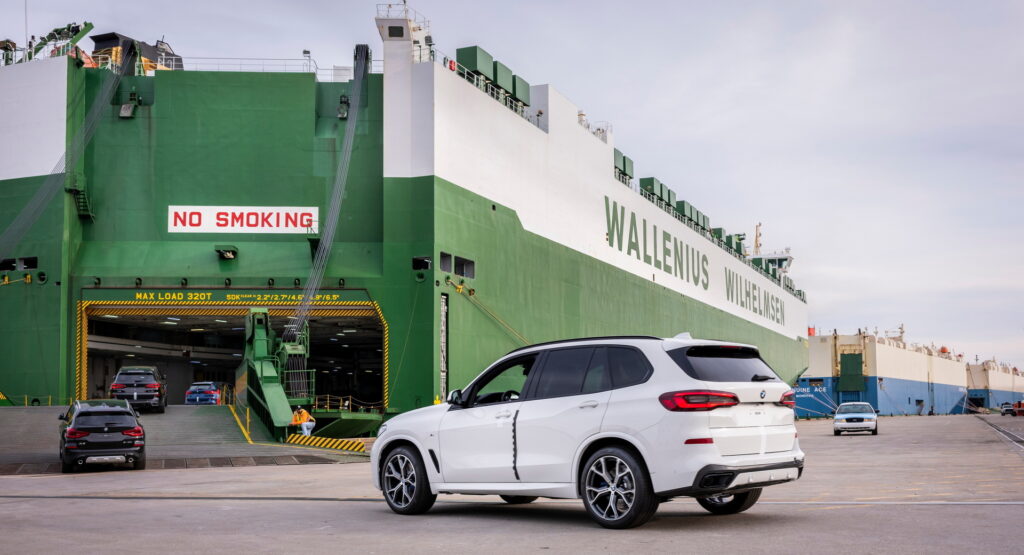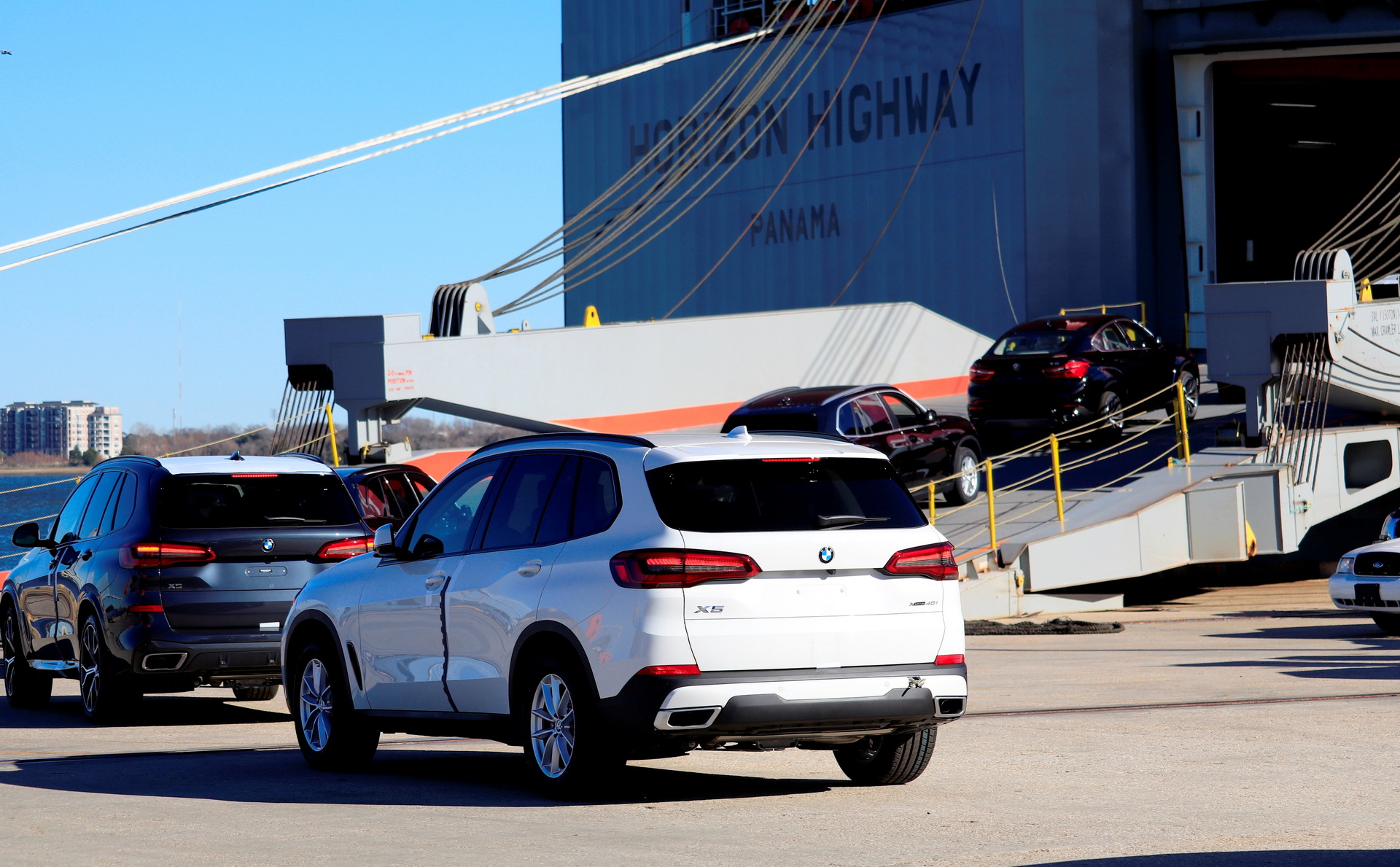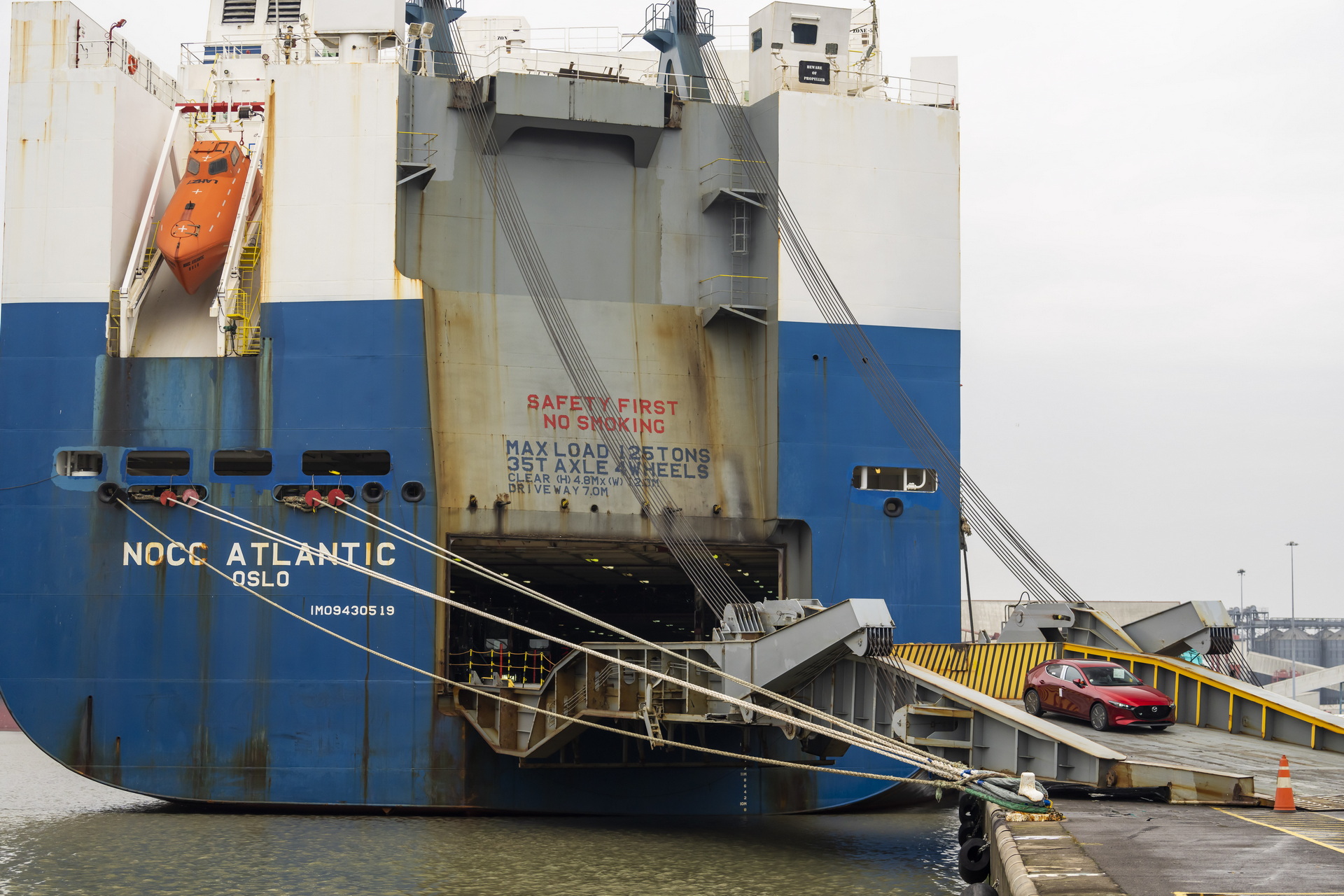A lack of drivers to move containers and cars, in combination with high volumes of trade, have led to gridlock at the German Port of Bremerhaven, one of the largest automobile hubs in the world.
The backups are forcing vehicles ready to enter or leave Europe to sit at the port. That is causing delays for automakers such as BMW, Stellantis, Renault, Tesla and Volvo.
“These delays are massive,” Andreas Braun, a logistics expert, told CNBC. “There is a three-month delay for BMW, where cars sit in yards waiting to be fitted with extras, especially with the iDrive touch controller.”
Read: BMW Unveils iDrive 8 System That Gains New Features, Improved Graphics And Better Smarts
On an average year, the Port of Bremerhaven moves 1.7 million vehicles, but a lack of high and heavy cargo drivers, as well as roll-on/roll-off drivers to move incoming vehicles, has led to serious delays.
In addition, there simply aren’t enough oceangoing vehicle carriers operating right now. The global fleet is down some 13 vessels, as compared to 2019, as a result of excess scrapping in the first year of the pandemic. Unfortunately for automakers and people waiting for new vehicles, that situation isn’t expected to by solved until 2024, when newly built vessels start being delivered.
As a result of the shortage of automobile transporters, shipping lines have had to make difficult decisions. Wallenius Wilhelmsen, for instance, has refused export bookings to the U.S. from Bremerhaven, Germany, for the months of October and November. That could continue into December, if the situation at the port doesn’t improve.
Although the move did briefly help reduce processing times at the port, which is Europe’s fourth largest for shipping containers, even despite that, processing times are trending up once again.
Unfortunately for consumers, the shortage could have an impact on prices. Although they had started normalizing as supply chains became less gnarled, delays at the ports are “likely to keep rates high because vessels are trading at full capacity,” according to Braun. And with demand growing for EVs from China in Europe, the strain on ports may only grow.






